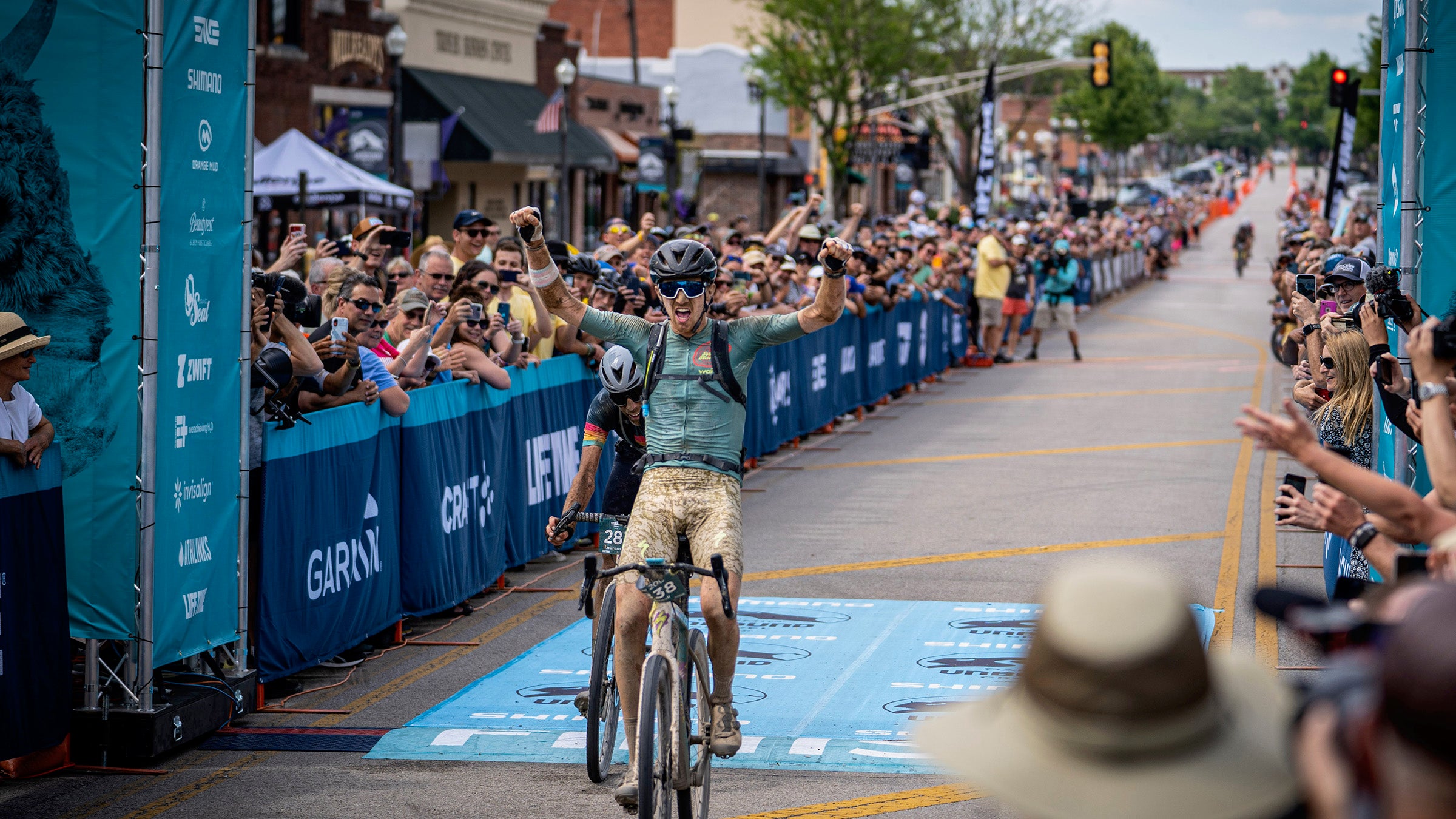Ian Boswell faces a new decision after Unbound Gravel win — whether to become a pro cyclist again

Even Unbound Gravel champ Ian Boswell runs a low-key gravel event in Vermont.
SAN MARCOS, California (VN) — In the weeks after Ian Boswell won Unbound Gravel, his phone began to ring — a lot.
Bike brands, fellow racers, and gravel teams reached out with sponsorship opportunities that revolved around him racing full-time on the U.S. gravel circuit. Boswell, who retired from WorldTour road racing in 2019, said the offers made him contemplate a question that he never thought he’d face after retirement — whether or not to return to the life of a professional bicycle racer.
“I very much haven’t made a decision — I honestly have no idea what I’m going to do,” Boswell told VeloNews. “I’m 30 years old, and mentally, it was a transition to get to where I am — accepting that I’m no longer a pro racer.”
Unlike several other WorldTour pros who have taken up gravel, Boswell does not see himself as a full-time racer. He maintains a salaried job in the marketing department for Wahoo Fitness. His job title is ‘athlete liaison,’ and he helps manage the brand’s army of sponsored athletes, as well as helping with on-site event marketing.
The job allows him to ride his bicycle sometimes 20 hours a week, but Boswell said there’s an important distinction between himself and full-time professional racers on the U.S. gravel scene.
He’s not paid to race his bike — Wahoo pays him to attend marketing calls, answer emails, and stare at spreadsheets.
“You still want to do the best you can [at races] but I went through this transition, and it doesn’t matter if I win or lose anymore,” Boswell said. “Whether it’s Wahoo or Specialized, no one is like ‘Hey, you need to win this race.’ I don’t have performances bonuses in any of my contracts because I didn’t anticipate on performing.”
Boswell credited that pressure-free mentality with helping him win Unbound Gravel in June. He survived the early chaos of the 2021 edition to ride into the elite front group alongside former WorldTour riders Peter Stetina, Ted King, and Laurens ten Dam, as well as defending Unbound Gravel champion Colin Strickland.
Boswell then weathered late attacks by Stetina and powered to the finish line alongside ten Dam, whose win at the Gravel Locos race two weeks before Unbound Gravel made him a pre-race favorite.
As the two pedaled into downtown Emporia Boswell led out the sprint, and his high tempo kept ten Dam from coming around. The victory came as a surprise, and at the finish line, Boswell repeated again and again that his lack of expectations helped him psychologically endure the brutal 205-mile race.
After he won the 2019 edition, Colin Strickland was offered a chance to join WorldTour team EF Education-Nippo to race the Belgian classics.
Strickland turned down the deal, and in the months after his win he was able to add sponsors Rapha, Wahoo Fitness, and other brands to his lineup of existing sponsors for gravel racing. Boswell could likely compile his own line of personal sponsors to fund his racing — but these deals often carry performance bonuses for wins that add pressure to a rider’s schedule.
Boswell said there’s another factor weighing on his decision. He and his wife, Gretchen, are expecting their first child in December. And his life away from cycling has also changed dramatically since he hung up his cleats. These days he’s a member of the volunteer fire department in the town where he lives. And he and Gretchen are now dog owners.
How a return to full-time racing might impact this new life is something to consider.
“I don’t want to be gone five months of the year — I’ve barely been home in Vermont this summer,” he said. “I have my wife and house, plus racing and work. Adding a child is a whole other department in the proverbial grocery store — can I manage all of those departments?”
There are factors tugging at Boswell to consider a full-time gravel career. Could he create a racing program that allows him to work and also race? Could he create a program that also funds charity projects, or his desire to give back to the sport of cycling? That’s an enticing element that Boswell said he’d absolutely consider.
“To be at the highest level of sport you have to be very selfish, and you take a lot from the sport of cycling, whether it’s free race entries or sponsors, or time away from family — you take from a lot of people,” Boswell said. “Whatever I do, I want to make sure to what I’ve found this year which is giving back.”
No matter what decision he makes, Boswell is likely to remain a fixture at the races. In what capacity is still open for debate.